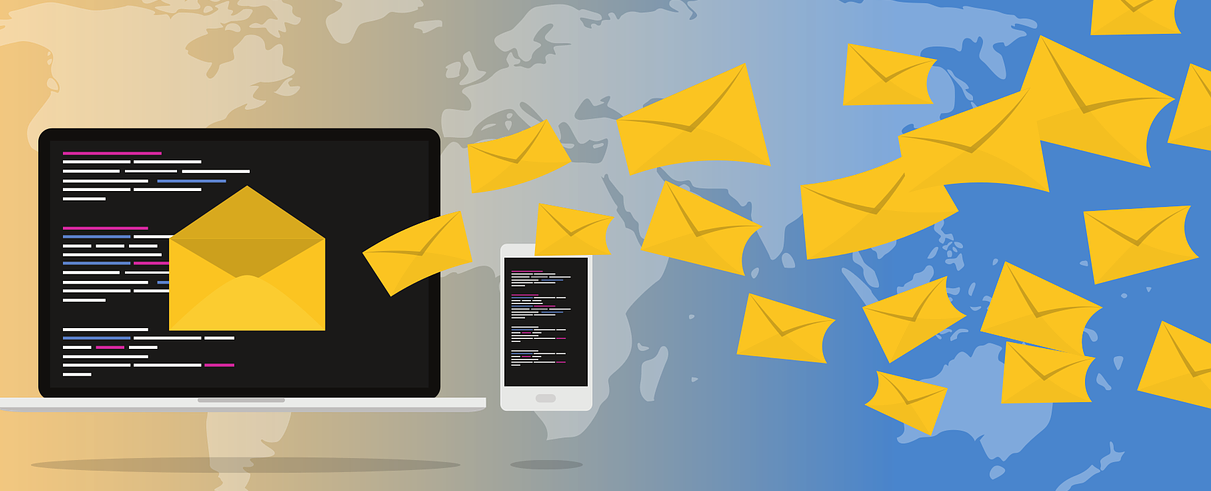
The 7 Critical Reasons Why Businesses Should Avoid Buying Email Lists

In the effort to expand their email reach, many marketers fall into the trap of purchasing email lists to flesh out their inbound strategy. However, this is an approach that you should avoid at all costs as it could end up doing far more harm than good. Here’s why businesses should avoid buying email lists.
Email is an integral part of a holistic marketing strategy. It’s an easy, cost-effective way to get in front of your customers. For that moment, you have their undivided attention outside of all the noise.
Why Legitimate Marketers Should Avoid Buying Email Lists
It’s tempting. Thousands of contacts are just a click away! But before you give in, here are a few points to consider:
1. They’re Not Your Customers
You might look at thousands of emails on a list and think, “there’s got to be a handful of good leads in there.” However, if those leads aren’t qualified, it’s a waste of time, money, and effort. The finance industry is built on trust, and receiving an unsolicited email, even when coming from a legit company, positions you as an opportunistic spammer. You’re more likely to end up in the junk folder.
2. You Can’t Trust The Quality
Any emails that are for sale have likely been sold hundreds of times over. They often have incorrect names attached to them, or they might not even exist anymore. Simply put, purchasing an email list is like buying a pile of junk, sight unseen. If the emails were obtained fraudulently, you could be opening yourself up to legal action, too – a costly premise, as you could be subject to a five-figure fine for every email you send.
3. Good Emails Are Not For Sale
A reputable company does not sell their contact lists. So, unless you are partnering or have merged with another organization and leveraging an established database, it’s far more likely that these are unresponsive or unqualified contacts. It’s only logical – nobody shares their good leads, so you shouldn’t expect to be able to purchase them.
4. You Are Violating Opt-In Legislation
According to the GDPR and other data privacy legislation, email recipients must be able to opt-out of emails. And if you think you’re exempt because your company is not European, think again! If any of your recipients are EU citizens, the law applies. When you purchase an email list, you have little control or oversight in terms of where the accounts are based, so any complaints made against your tactics could expose you to costly legal action. Under the act, all email recipients must give their express consent to receive emails from you. If you cannot reasonably manage this, you are not compliant.
5. You Risk Damage to Your Reputation
Sending out thousands of unsolicited emails is pretty much guaranteed to get you into hot water. There are organizations all over the world that are dedicated to flushing out spam, and if you are identified as such, your IP address and domain will be flagged as fraudulent. Email service providers recognize senders that continually send to invalid addresses. Too many hard bounces will flag the sender as a spammer, and anything coming from your IP range will start going directly into the junk folder for any recipient on their server. It might take years to reverse the damage, and it’s certainly not worth it.
6. You Might be Subject to Penalties From Your Email Service Provider
Email service providers and services don’t allow illegal activity. If you are flagged as a spammer, they won’t hesitate to shut you down, either temporarily or permanently, usually the latter. Most service providers encourage their customers to report spammy activity, so they’ll likely catch up with you sooner than later.
7. You’re Not Going to Get The Results You Want
We’re all pretty busy these days. Why would you want to waste time, money, and effort on something that you’ll not only have to do over again but will create a bigger mess for you to clean up after the fact? In the financial industry, the average open rate is just over 21 percent. With an unqualified, purchased email list, you’ll have to accept that this metric will drop to almost zero (you’ll be lucky if you get any opens or clicks at all). Any way you toss it up, you’ll be back at square one.
So, what’s the bottom line on purchased email lists? We can’t stop you from doing what you feel compelled to do, but we do not recommend it.
Avoid Buying Email Lists. Instead, Build A Quality List of Your Own
Granted, it takes time to build an extensive email list from scratch, but the effort is well worth it what you consider:
- More qualified leads
- People who are interested In what you have to say
- Better open and click-through rates
- Increased engagement
- Legally compliant
- Build genuine relationships
If you’re just getting started, here are a few ways to avoid buying email lists, and instead build a quality email list that will engage your customers and help you grow the bottom line:
- Create Gated Content. Authoritative content, such as white papers, eBooks, tip sheets, and checklists are a great way to collect emails. Create your content and offer it for free in exchange for an email address. They’ve opted in, they are interested in what you have to say, and you’ve got an excellent chance of gaining a new customer.
- Offer Useful Online Tools. Another way to collect emails is to offer a useful online tool in exchange. Ideas might include a mortgage calculator, a budgeting tool, or a free demo/trial of one of your products.
- Place Opt-In Boxes On Your Website and Social Channels. When a customer is engaged with your content, that’s the best time to ask for their contact info. However, don’t rely on a single sign-up tactic to cover all your bases. Place a box with a creative CTA on every page of your site (anchored in the header or footer). You might also create a pop-up that appears when the site visitor is about to click away, asking for their email in exchange for your lead magnet, tip sheet, or white paper. Cross-promoting on social is a great way to double down on this approach. Don’t be shy.
- Get Creative With Your Emails. Email marketing doesn’t have to be all about sales. In fact, you’ll catch a lot more attention if you provide something distinctly un-salesy. Engaging or useful emails often get forwarded to others from your intended recipients, so it’s an excellent way to expand your reach.
- Incentivize Your Existing Customers. If you have happy, satisfied customers, they likely know others who would benefit from your expertise. Offer your clientele something valuable in return for their referral, such as waiving their monthly account fee for every new customer they refer, or even entering them into a draw for something valuable, like merchandise or gift certificates.
In closing, we hope we’ve convinced you that there is a better way to build an email list than purchasing from some shady, backroom spam-monger.
If you would like to learn more about how we can support you in creating a quality email list, reach out today. We’d love to show you how we can help.
—
BE SURE TO CHECK BACK AND FOLLOW OUR #WORKINGREMOTELY SERIES
You may also be interested in:
Editor’s Picks
Many people are skeptical or even afraid of Artificial Intelligence (AI). But we've been using it to enhance our team and capabilities. The real...


Connect with us to discover how we can help your business grow.
.jpg)
